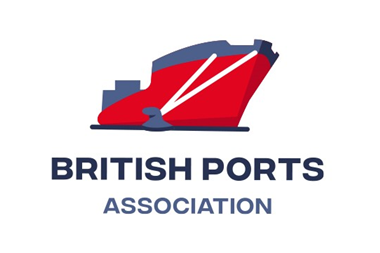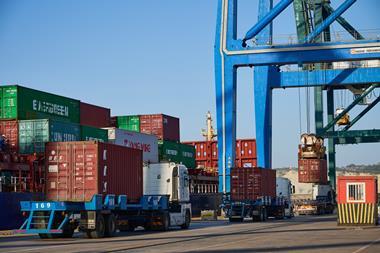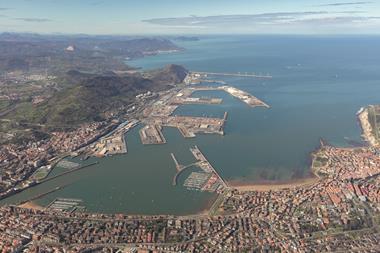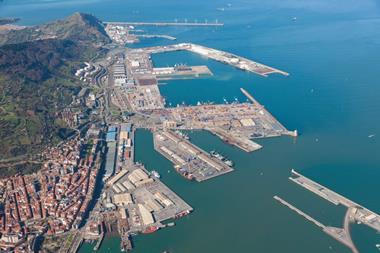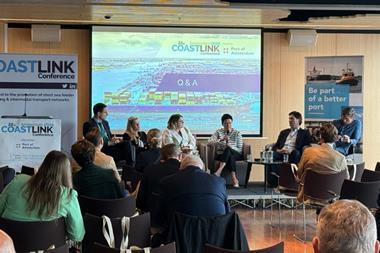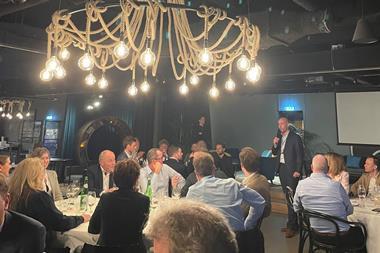The science is clear – we face an emergency. We can and must decarbonise logistics. This was the stark message from Maersk general manager David Browne in his keynote address opening the second day of the Coastlink conference in Liverpool.
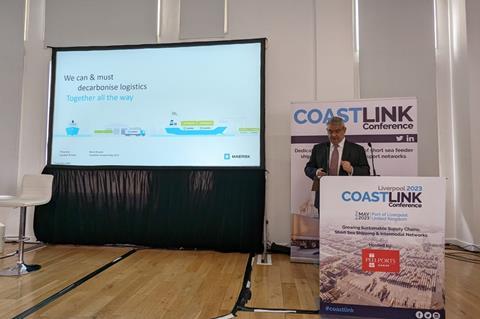
He also threw down a challenge to the International Maritime Organization’s Marine Environment Protection Committee (MEPC), where the IMO’s revised IMO GHG Strategy is due to be considered in July.
Describing the IMO’s Net Zero plan towards 2050 as a bit ‘sketchy’, he said of the MEPC: “I hope to see much greater ambition than the initial GHG strategy and a strong recommendation of what milestones need to be achieved, then supported and approved by governments.”
However, he said: “That will not stop us [Maersk] going forward and taking our own actions and ramping it up, because we have to deliver our goal of Net Zero across our whole business by 2040.”
The fleet is the right place to start, but Maersk is taking it a step further and looking to decarbonise across the whole end-to-end supply chain, taking in all the products and services it offers through the supply chain, said Browne – and that includes the use of other lines’ vessels for some shipping.
He gave details of Maerk’s green methanol fuelled 2,000 teu feeder vessel now being built and due to enter operations later this year, to be followed by a series of 16,000 teu capacity vessels powered by green methanol joining the fleet.
However, he said, with a large range of vessel sizes, types and roles, no one size fits all when it comes to future fuels for the world fleet.
Biodiesel has limited availability of feedstock, so scalability is an issue, for example. “Green ammonia could be a real contender – it is interesting and there have been good results from industry tests. However, waiting for ammonia to be proven and ready to scale would lose us the best part of the 2020s. Hydrogen is further down the line than ammonia.
“Green methanol technology is available now and is being fitted in our feeder and will be used for a larger fleet. We can start the change this year.”
Waiting for the other technologies to be ready is not an option, said Browne: “We need to change now. We do expect a mix of different carbon-neutral fuels to exist alongside each other. The biggest challenge is scaling these fuels to meet global demand – this will require collaboration across the value chain.”
Because of the size of its fleet, Maersk is in a position to assist the industry in moving forward on decarbonisation and future fuels, noted Browne.
“We are in a position where we can say ‘let’s get a methanol vessel in the water now and run it for a few years.”
Other operators with smaller fleets which don’t have the opportunity to run a test case, “might be able to learn from our successes or failures”, he said.


